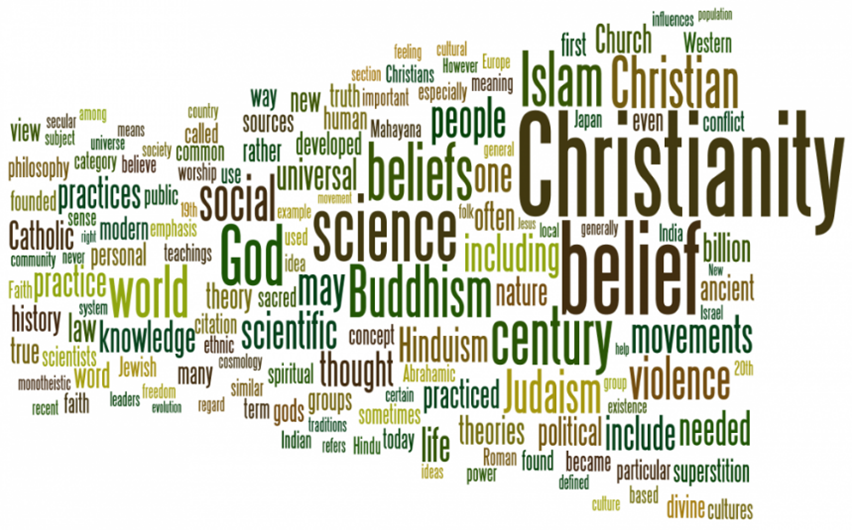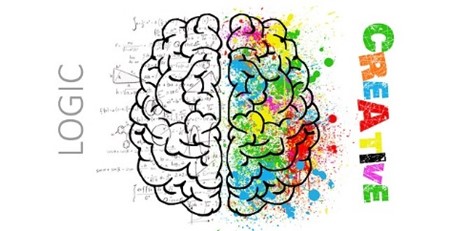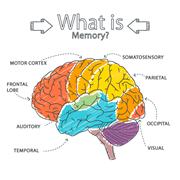Religious Studies and Social Sciences
Religious Studies


Curriculum vision
Our aims and visions are to teach young people to begin to understand the major world religions beliefs, practices and teachings. Pupils will learn by questioning, explaining and evaluating these and formulate their own judgements and views on the subject matter. As they progress through the years, pupils will study the ethical and philosophical topics that challenge religious and non-religious thinkers today. We hope to develop their empathy and appreciation of diversity of beliefs and perspectives. Our pupils have the opportunity to enrich their learning through a range of visiting external speakers, workshops and enrichment clubs.
By the end of KS3, we would like all pupils that study religious studies to:
A - Know about and understand religions and world views
B - Express ideas and insights into religions and world views
C - Gain and deploy the skills for learning from religions and world views
They will develop these aims further by:
- Developing knowledge of different belief systems and behaviours of people in the UK and worldwide while understanding similarities and differences through the idea of diversity.
- Building on the skills of analysis, evaluation, empathy and debate while being able to showcase their own philosophical and ethical views.
- Developing a passion and awareness of the big and small issues of life in a personal and global perspectives.
Our pupils will have the opportunity to enrich their learning through a range of visiting speakers, workshops and extras curricular enrichment clubs.
Please see the attachments at the bottom of the page for the curriculum plan.
By the end of KS4 GCSE Religious Studies, we would expect pupils to:
Develop their knowledge and understanding of:
- Christianity, Islam, Non-religious beliefs such as atheism and humanism
- Religious beliefs, teachings, practices, and sources of wisdom and authority, including through their reading of key religious texts and other texts
- Religious traditions of Great Britain that are, in the main, Christian
- Develop their ability to construct well-argued, well-informed, balanced and structured written arguments, demonstrating their depth and breadth of understanding of the subject
- Engage with questions of belief, value, meaning, purpose, truth, and their influence on human life
- Reflect on and develop their own values, beliefs and attitudes in the light of what they have learnt and contributes to their preparation for adult life in a pluralistic society and global community.
- Build on their understanding of the relationships between people
- Become informed about common and diverse views within traditions in the way beliefs and teachings are understood and expressed
- Understand that religious traditions in Great Britain are diverse and include the following religions: Christianity, Islam, Judaism, as well as non-religious such as atheism and humanism.
Please see the attachments at the bottom of the page for the curriculum plan.
![]() EDUQAS GCSE Religious Studies- Route A
EDUQAS GCSE Religious Studies- Route A
![]() Careers with Religious Studies or Philosophy and Ethics
Careers with Religious Studies or Philosophy and Ethics
KS4 non-examined Religious Studies
- All pupils cover the RE requirement for KS4 RE within the modern studies curriculum. Modern Studies covers the statutory requirements of RE, Citizenship, PSHE, and Careers.
- Within RS- pupils will cover the SOW detailed in the curriculum plan. Please see the attachments at the bottom of the page for the curriculum plan.
The religions and topics are covered, so that pupils can learn and understand the beliefs and teachings of 'minor' world religions and critically compare and evaluate their beliefs to other religions or world views. The social issues are taught to deepen the pupil’s knowledge and question the meaning of life. The prejudice and discrimination units fit into the RSHE policy and taught from the religious perspectives. Pupils are invited to discuss and question the issues raised in a meaningful and empathetic way where they learn from each other.
GCSE Psychology


Curriculum vision
Our aims and visions are to help pupils develop a love of learning in understanding how the mind can influence human behaviour as well as developing our pupils into well rounded active citizens. Through the study of a broad range of topics such as neuropsychology, mental health, social influence, aggression and relationships. Our pupils develop a tolerance, awareness and respect towards other individuals. Pupils are challenged in class to consider alternative ideologies and concepts, as well as how behaviour affects various and diverse cultures and upbringing experiences. Pupils will be able to develop cross curricular links drawing on knowledge acquired in maths and science when focusing on research methods. Pupils will be given the opportunity to explore known case studies and published research articles conducted by psychologists renowned in their field.
By the end of KS4 we would like pupils to:
- Have developed skills in critical analysis, independent thinking and research
- Demonstrate knowledge and understanding of psychological ideas, processes, procedures and theories in relation to developmental psychology, perception, memory and research methods
- Apply psychological knowledge and understanding of development, perception, memory and research methods to a range of contexts
- Analyse and evaluate psychological ideas, information, processes and procedures in relation to development, perception, memory and research methods
- Make judgements, draw conclusions and produce developments or refinements of psychological procedures based on their reasoning and synthesis of skills
- Evaluate therapies and treatments including in terms of their appropriateness and effectiveness
- Show how psychological knowledge and ideas change over time and how these inform our understanding of behaviour
- Demonstrate the contribution of psychology to an understanding of individual, social and cultural diversity
- Develop an understanding of the interrelationships between the core areas of psychology
- Show how the studies for topics relate to the associated theory.
- Developed knowledge in relation to ethical, practical research activities, involving: designing research, conducting research, analysing and interpreting data
Please see the attachments at the bottom of the page for the curriculum plan.
![]() Careers with Psychology qualification
Careers with Psychology qualification
Health and Social Care
OCR Cambridge Nationals Levels 1 and 2

Curriculum vision
Our aims and visions are to cover as many aspects of health and social care, from studying values of care to supporting individuals through life events. We aim to develop pupil’s independence and research skills as well as promoting literacy and written communication. We want pupils to be actively engaged, enthused and inspired by their experiences in the classroom to the point where they may consider a career in one of the Health and social care areas- child care, health care or social care. The optional unit had been selected to expose pupils to some of the most interesting and engaging material that the exam board offers. This includes studying public health issues and their impact on society, and factors on healthy living and well-being. Pupils will be able to deliver a whole school presentation on promoting healthy lifestyles.
By the end of key stage 4, we would like pupils to:
- Understand and apply the fundamental principles and concepts of the rights of individuals, person centred values, effective communication and how to protect individuals in health and social care settings
- Develop learning and practical skills that can be applied to real-life contexts and work situations
- Think creatively, innovatively, analytically, logically and critically
- Develop independence and confidence in using skills that would be relevant to the health and social care sector and more widely.
- Understand the rights of individuals and person-centred values and how to apply these when working with service users
- Have knowledge and understanding of how to protect individuals through infection prevention, safeguarding and safety and security measures
- Understand growth and development through the life stages
- Understand life events and how to support individuals through them
- Have developed transferable skills, such as evaluation, planning, presentation/delivery and research skills.
Please see the attachments at the bottom of the page for the curriculum plan.

